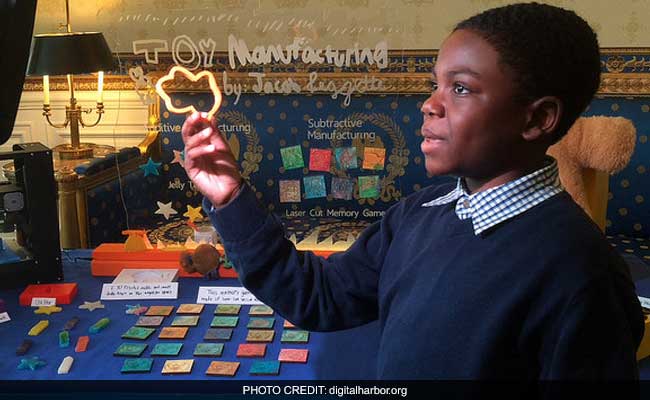 Follow the link below to read about a young man who’s story should be on the national news. Props to the Washington Post for printing this story about him!
Follow the link below to read about a young man who’s story should be on the national news. Props to the Washington Post for printing this story about him!
http://www.ndtv.com/world-news/hes-9-and-he-wants-to-work-for-obama-now-1396224
 Follow the link below to read about a young man who’s story should be on the national news. Props to the Washington Post for printing this story about him!
Follow the link below to read about a young man who’s story should be on the national news. Props to the Washington Post for printing this story about him!
http://www.ndtv.com/world-news/hes-9-and-he-wants-to-work-for-obama-now-1396224
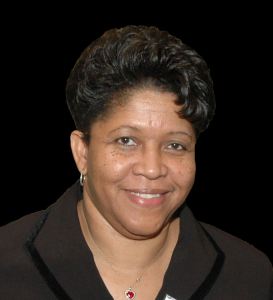
I’ll be the guest of Pat Thornton, on her radio show, The Thornton Business Hour on WOL 1450 AM tomorrow January 20th at 11:00. You can also listen to the live stream at http://woldcnews.newsone.com/ if you are outside of the listening area.
Pat and I will be talking about how to earn a college degree in less time with less stress for less money. If you would like to leave a comment or a question that you would like for me to answer during the show please do so in the comments section below and tag it #ThorntonBusinessHour.
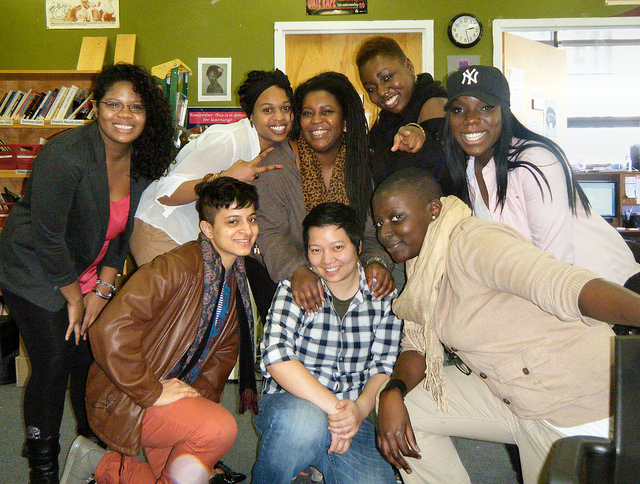
In African America: What The Media Won’t Tell You, I wrote about growth in the African American population from “The Untold Story” – a Nielsen Corporation report. There are other important facts about us in this report I want to share with you. First, African Americans are, on average, younger than the non-hispanic white population – 31.4 years for African Americans versus 39 years for non-hispanic whites in America. This means that advertisers have a longer period to build brand loyalty with African Americans and that we should be careful about what companies we have long term relations with. Our dollars will be even more important to them in the future so we should spend them carefully.
This will be even more important in the future because Blacks in America are going to college in greater numbers than Whites in America – 70.9% of black high school graduates versus 67.3% for non-hispanic whites. This means we will consume longer with more money to spend because we are better educated. The impact of more Blacks going to college is also reflected in the increased African American presence in the STEM disciplines. In 2011, 6% of STEM professionals were Black up from only 2% in 1970.
Finally, Blacks in America are not just focused on making and spending more money. As our incomes rise at faster rates than non-hispanic whites, so does money allocated for the future in categories such as insurance policies, pensions and retirement savings. This is important because too much black wealth has been in real estate instead of financial assets. That’s why the real estate bubble that started the recession we’re recovering from now greatly reduced Black wealth in America.
This is just some of the information that shows African Americans will continue to play a more important economic and demographic role in American than what is shown in the media. Let me know what you think about this data. Next time I’ll share more information with you about how diverse the black population in America is. We’re not just one group of people.
 A recent article in the New York Times focused on achievement gaps caused by socio economic differences instead of racial differences between students in America. These achievement gaps begin to show up early – cognitive differences start to appear in children from the top and bottom socio economic sectors in America before kindergarten and only increase as they progress through school. Furthermore, the achievement gap between high and low income students has increased. Since 1970, the achievement gap on standardized test of reading has increased by almost 40% between the 10th and 90th percentile household income .
A recent article in the New York Times focused on achievement gaps caused by socio economic differences instead of racial differences between students in America. These achievement gaps begin to show up early – cognitive differences start to appear in children from the top and bottom socio economic sectors in America before kindergarten and only increase as they progress through school. Furthermore, the achievement gap between high and low income students has increased. Since 1970, the achievement gap on standardized test of reading has increased by almost 40% between the 10th and 90th percentile household income .
What this means is that there is limited upward mobility in America – more limited than in most first world countries. A child born to parents with income in the lowest bracket is ten times more likely to end up in that same lower bracket than they are to rise to the highest bracket as an adult (43 percent versus 4 percent). And, a child born to parents in the highest income bracket is five times more likely to stay there than end up there than the lowest (40 percent versus 8 percent). These results run counter to the historic vision of the United States as a land of equal opportunity.
The good news is that a college degree can make a big difference. Without a college degree a child born into a family in the lowest income bracket has a 45 percent chance of staying there forever and only a 5 percent chance of moving up into the top bracket. Children born into the lowest income bracket who do earn a college degree have only a 16 percent chance of staying there and a 19 percent chance of moving up into the top bracket.
Upward mobility means more than just money. Parents in higher socioeconomic brackets invest not only more money in their children, but more time as well. On average, mothers with a college degree spend 4.5 more hours each week engaging with their children than mothers with only a high school diploma or less. This means that, among other things, by age three, children of parents who are professionals have vocabularies that are 50 percent larger than those of children from working-class families, and 100 percent larger than those of children whose families receive welfare, disparities that some researchers ascribe to differences in how much parents engage and speak with their children. By the time they are three, children born to parents who are professionals have heard about 30 million more words than children born to parents who receive welfare. Additional language skills put child at a distinct advantage when they start school and will probably follow them throughout their educational career.
All of this information makes getting a college degree even more important for all students – especially disadvantaged students. It’s the best investment they can make with a higher return than any other way to invest the cost of a college education. It doesn’t just mean more money, it can mean changing the path taken in life. If you’re in high school now, do the best you can and do everything you can to get a college degree. If you are in college, stay there until you’re finished. Getting that degree can be a life changing experience for you and for all the stakeholders in your life.

In my last post, Strong Shoulders, I talked about the importance of having family and mentors who shape a young person’s life from birth. I was blessed to have people like this in my life. The first one I want to tell you about is a friend of the my family we called, The Bishop. He was not a man of the cloth as the name suggests and I’m not sure how he got this nickname but that’s what my father, who was his lifelong friend, called him. The Bishop was known for his sage advice and one day, he told me,
“Granville, be grateful in your life if you can have three friends – your mother, your father and one other person.”
I am grateful that for more than fifty years, I had, my mother and father in my life, guiding, supporting and encouraging me. They are the ones who helped me learn how to think and how to express myself. As long as we lived at home, they my sister and me to be home for dinner six days a week – Sunday through Friday. Saturday you were on your own and that helped me learn to cook to eat on the weekend! However, each night we had a family dinner, we would finish the meal and then do what I call, “talk some good talk”. There were no restrictions on what we could talk about or who could talk. All comments were taken seriously and responded to critically. Not that what was said was criticized but that meant that if you didn’t have something substantive to say, you listened and learned until, then you talked. I learned so much about people and the world at that dinner table. As I approached adulthood, the discussions became more important to me than the meals. I always learned something.
My wife and I had the same rules in our house – home for dinner six days a week for good food and good talk. Our friends and our daughters’ friends were always welcome to join us for dinner and conversation – around our table, everyone was family. My daughters who are now 25 and 32, one with children of her own, still say how much they enjoyed being able to talk with us about anything and, to some extent, reconnect at the end of each day.
My mother use to say that you can’t make the world safe for your kids you have to make your kids safe for the world. I think talking good talk at dinner is a great way to do that. Even though I can’t be with them at dinner, I take every opportunity to talk some good talk with my students in my roles as teach and mentor. I believe this can be just as important to student success as doing well in the classroom.
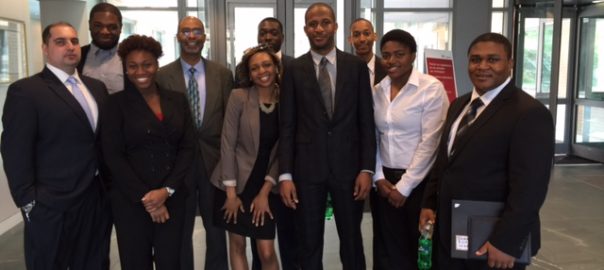
Dana Moody, a Bowie State University graduate who is now an Equity Investment Analyst at Vanguard Corporation in Malvern, PA, hosted several Bowie Banking and Finance undergraduates for an exploratory visit last week. The visit included discussions with new and experienced financial services professionals as well as senior portfolio managers for the second largest mutual funds management company in the world.
It was an opportunity for students to meet and interact with finance professionals to talk about what it’s like to manage multi-billion dollar portfolios, just the kind of information that helps them understand what options can be available to them as they prepare to make career choices when they graduate.
Thank you, Dana, for giving back to your alma mater in such a substantive way.
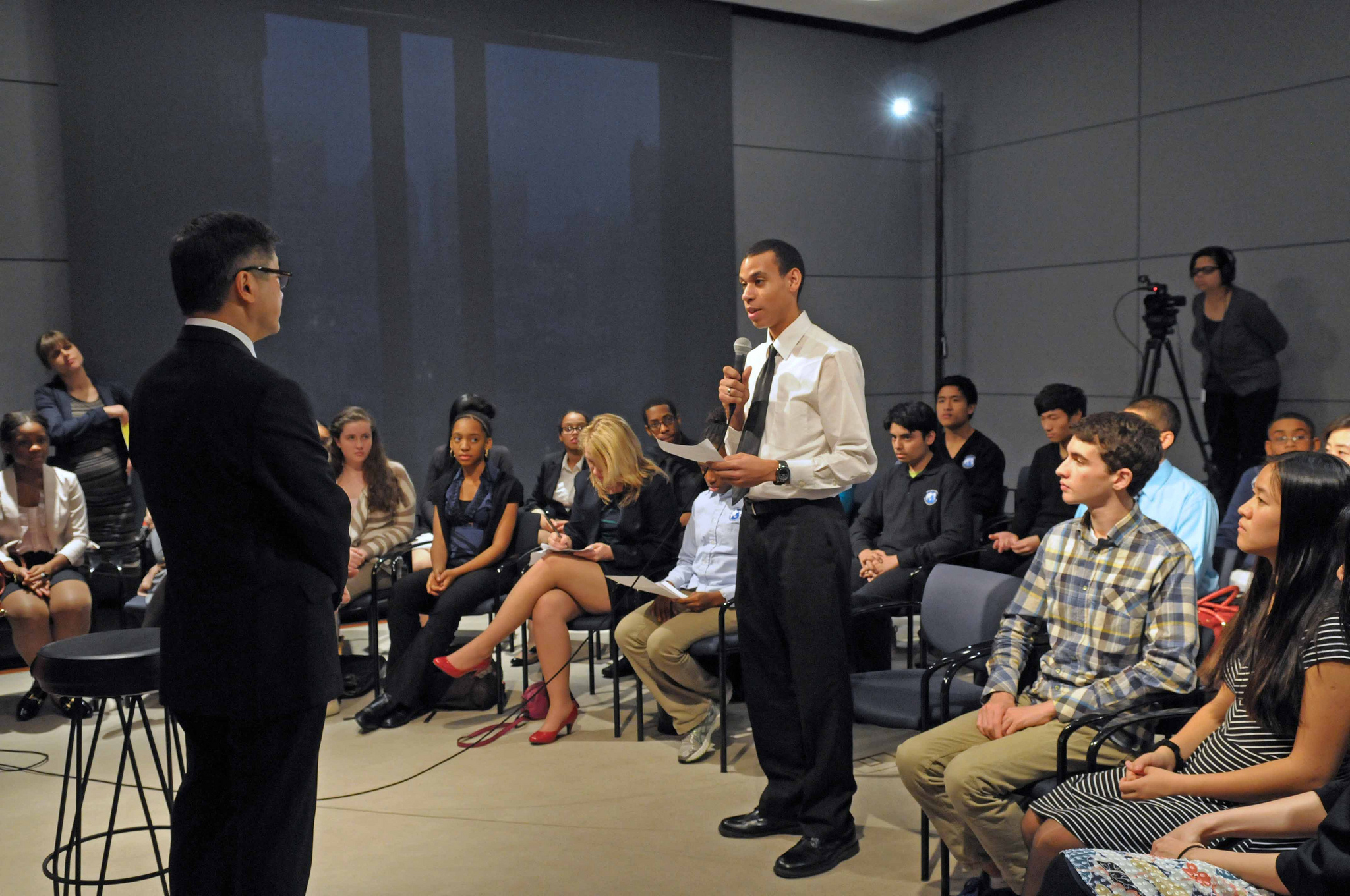
Over the past few GradeUP! Challenges we’ve been talking about the view from where you are to where you want to be – better known as planning. I started with what’s closest on your horizon – this semester (Challenge #19) and then what’s in your longer view – next semester and beyond (Challenge #20). Before I finish up the GradeUP! Challenge blog series with advice on preparing for finals, I want to share some information with you on how to take advantage of a unique opportunity that will help with your plans for your longer-term future – the after college future.
The college setting is one of the few places where you have the ongoing opportunity to talk with professionals from the private and public sectors. Take advantage of every opportunity to attend a talk when speakers come to campus; learn from their experience and use the information these professionals share to help your future plans. Too often students only hear these visitors say the equivalent of, “This is who I am and this is what I do and if you work hard you can do it too.” That’s because most students rely on the speaker to deliver information that will resonate with them. To get more than a recent version of the speakers resume, you have to ask the questions that you want answers to. You have to be proactive in getting the information that you can use to launch and build your career from the foundation that college provides.
Here are some questions designed to help you get the most out of your exposure and engagement with a professional. As soon as the speaker ends their presentation with, “Are there any questions?” throw your hand up, stand and ask these questions:
Use the answers you get to these questions to help you set long-range and short-range goals. Start with your long-range goals and then work your way back to the short-range goals achieving all of your goals, step by step.
Go to www.granvillesawyer.com/resources/ to get your own set of interview and planning sheets. Click on “Ask The Professionals: What Was Your Post-College Plan For Success?” and “Key Questions: What Is My Plan To Succeed In College?” You can also find more detailed resources along with the questions above in Chapter 10 in College in Four Years; Making Every Semester Count.
If you don’t have a copy of College in Four Years, I’ve made the book available at $14.99, a 25% discount from the regular retail price of $19.00. This special pricing is only available during the GradeUP! Challenge and expires May 3, 2015. Click the link above or on the cover of the book to the right, then scroll to the “Special Pricing” section on the page.
All previous GradeUP! Challenges are available on the GradeUP! Challenge Week by Week page.
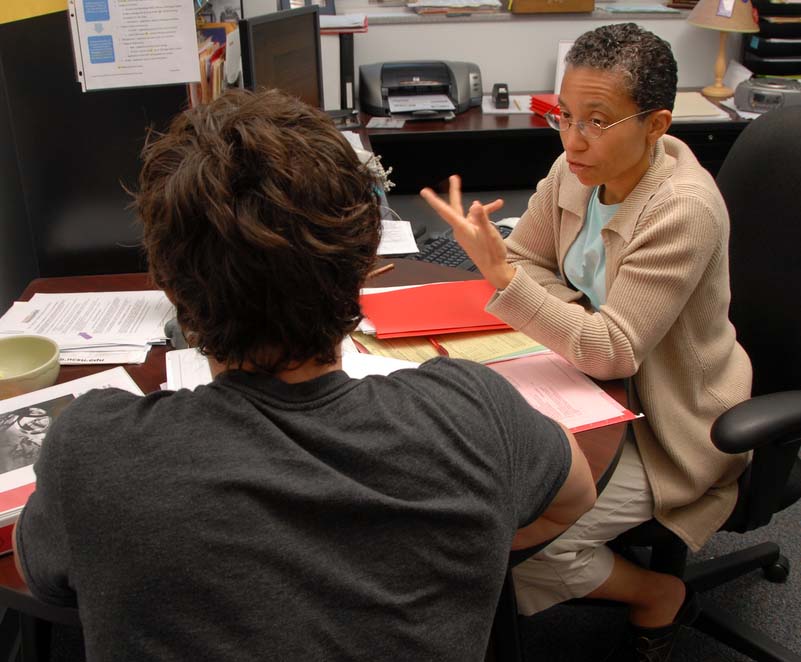 One of your most valuable and probably most under-utilized resources is your academic advisor. They do more than sign your advisement form. Your adviser actually has the best view of your academic future – no crystal ball needed. With access to your academic past (what courses you’ve already taken), present (what courses you’re taking now) and future (what you’ll need to graduate) and the experience they’ve gained from successfully shepherding other students through the college experience – they have some valuable skills.
One of your most valuable and probably most under-utilized resources is your academic advisor. They do more than sign your advisement form. Your adviser actually has the best view of your academic future – no crystal ball needed. With access to your academic past (what courses you’ve already taken), present (what courses you’re taking now) and future (what you’ll need to graduate) and the experience they’ve gained from successfully shepherding other students through the college experience – they have some valuable skills.
Meet with your advisor as early in the semester as possible – before the drop/add date in case you need to make changes to your schedule. When you see your advisor do the following:
Get more information and advice on working with your advisor in Chapter 9 of College In Four Years.
Let me know what you think about this post and the Challenge. Please leave a comment below.
The next Challenge posts on Thursday, 2/5/15. Learn more about the GradeUP! Challenge here.

Molly Mahoney Matthews and Dr. Granville M. Sawyer were recent guests for two shows on CBS Radio’s Biz Talk With Josh. Host Joshua I. Smith interviewed Matthews and Sawyer and the topic was Bookends, an innovative approach to college as an entrepreneurial venture that prepares college students to graduate in four years with business and entrepreneurial skills. Bookends pairs the higher education experience of Dr. Granville M. Sawyer, Jr. with the entrepreneurial/business management success of Molly Mahoney Matthews using the information and insight from Molly Matthews’ book, Unsinkable: Find A Job, Create A Career, Build A Business and Dr. Granville Sawyer’s book College in Four Years: Making Every Semester Count.
Click the player to listen to an excerpt from the show:
Interested in learning more about Bookends for your organization or institution? Complete the contact form below.
Error: Contact form not found.